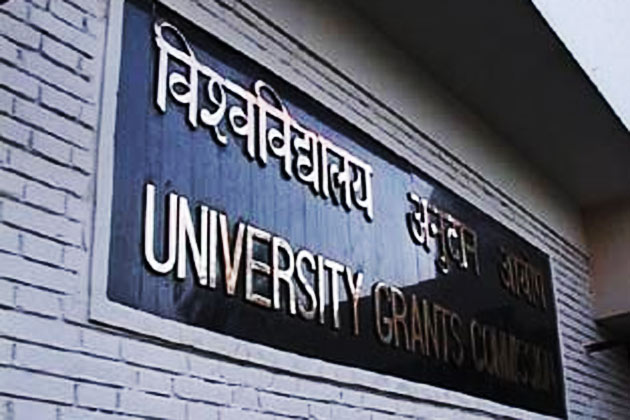UGCs Decision to Pass NET to CBSE Infuriates Teachers
NEW DELHI: The University Grants Commission have offloaded the combative National Eligibility Test on the Central Board of Secondary Education. This has caused a stir amongst the teachers across universities as they seem to have critical uncertainties about a school board steering an eligibility test for teacher recruitment for higher education establishments.
Teachers of arts and social sciences have given the most biting disapproval of UGC’s version of the NET. Vinita Chandra who teaches English at Ramjas College in Delhi University said that she had a student who has done her M. Phil from Cambridge University on a full scholarship, but she hasn’t been able to clear the UGC- NET. She added that it doesn’t test teaching skills or critical thinking. She further asked how the CBSE can hold a test for teachers when their entire system is against any kind of critical analysis.
Teachers of the arts and social sciences routinely blame CBSE and its single- mark or objective questions for students taking time to switch gears in college. And, as DU Teachers’ Association chief Nandita Narain puts it, “The CBSE has to get its act together in the first place. They dole out marks at such a rate that colleges don’t know how to admit.”
“I have a basic objection to such a test, no matter who conducts it,” points out Arun Kumar, the president of Jawaharlal Nehru University Teachers’ Association. “It is a very mechanical way of judging and isn’t necessarily the best way to test eligibility for teaching or research. What we need is a diversity of views in higher education and a broader spectrum of competences. With such tests, one would be reduced to playing the game of how to beat the system. He continues, “You already have this test, and you are compounding the problem by placing it under a school board which doesn’t have much idea of higher education.”
It was agreed by Subhadoy Dasgupta of the West Bengal College and University Teachers’ Association. “I don’t welcome this change,” says Dasgupta. Adding, “A school board cannot conduct this examination. Only post- graduates appear and it should be conducted only by a competent body.”
A guest teacher, Tarun Samurailatpam, wrote the exam for the fifth time this year without success. He says, “Previously, you could write a really good answer in the long- answer section. But now, MCQ questions are random. You can’t prepare for it. If they keep the same test, just with a different authority, what difference would it make?”
The mathematics teacher at St. Stephen’s College, Narain, says UGC- NET presented fewer problems for science students but the push should now be on “monitoring the assessment mechanism and transparency.” She adds, “There should also be an audit to check the correlation between good candidates and the NET scores.â€Â
Chandra asks, “If the UGC is considering a change, then why not scrap it altogether? They can have collegiums of teachers who actually hire college teachers to do the recruitment.”
Dasgupta reasons that UGC should go back to an earlier system in which those with an MPhil degree were immune from writing any entrance test. He stresses, “If the MPhil syllabus of some university is not up to the mark, then regulate that.â€Â
